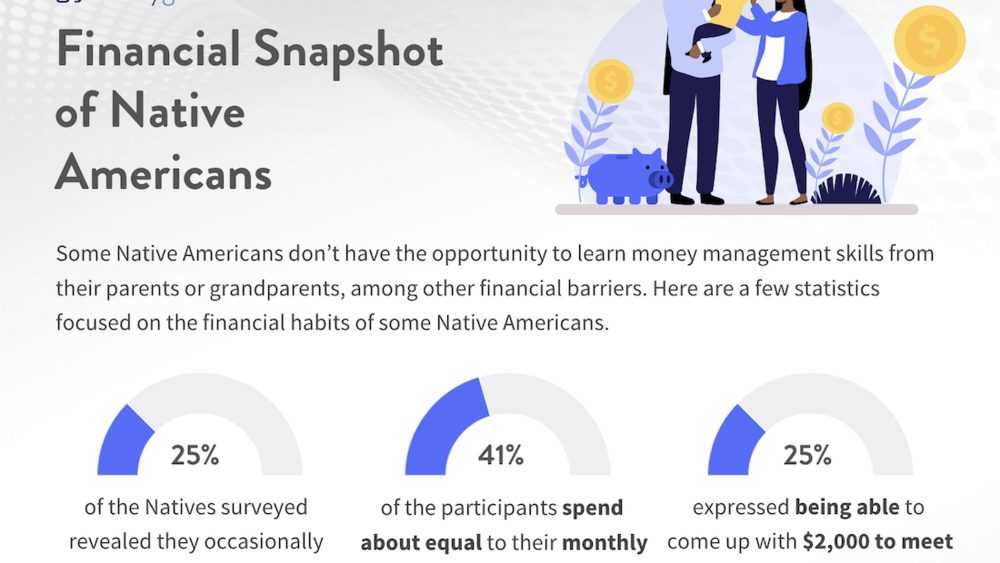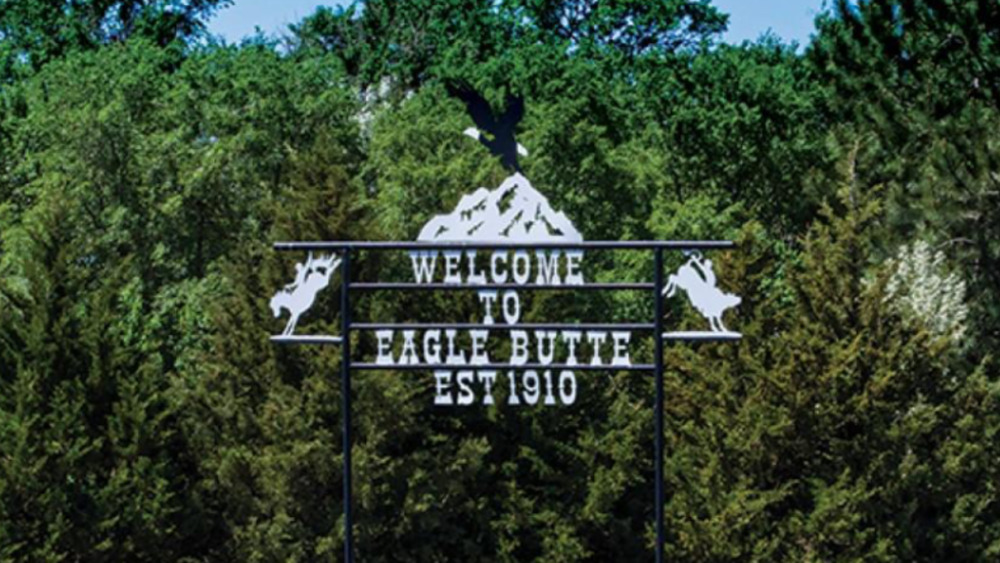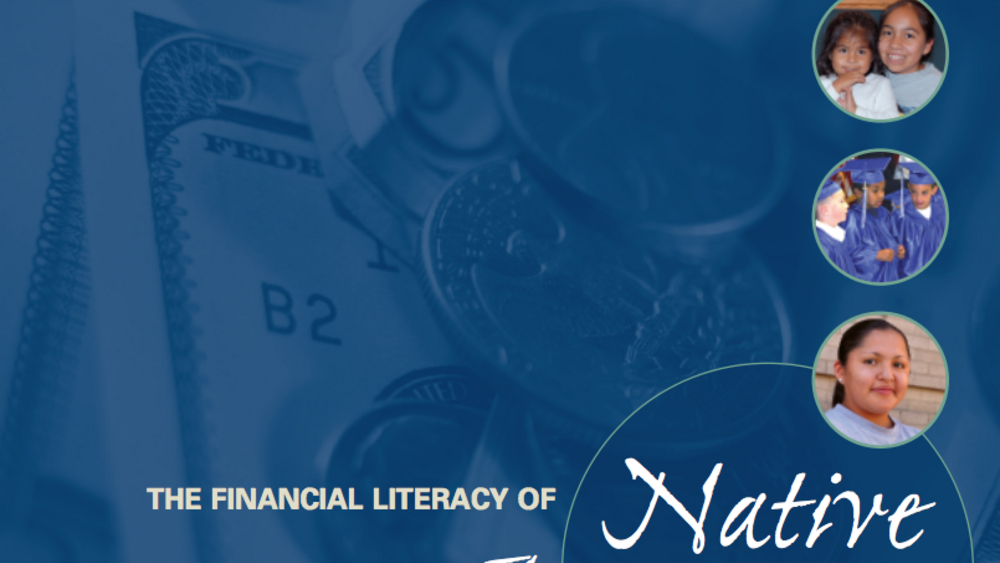Former Blood Tribe Councilor Jason Goodstriker discusses how his nation went to great lengths to instill financial transparency and accountability to its governance system.
Additional Information
Goodstriker, Jason. "Addressing Tough Governance Issues." Emerging Leaders Seminar. Native Nations Institute for Leadership, Management, and Policy, University of Arizona. Tucson, Arizona. March 26, 2009. Presentation.
Transcript
"Thank you. Good morning, everybody. Great to be here and thanks, Manley [Begay]. You're very kind and congratulations again on last night. I've put in a lot of years myself and I know about getting over the hump. I was just coming down here to the group to be...I was excited about speaking. And then I see a lot of my relatives here; these are the North Blackfeet from Siksika. And Vincent and I have been friends. And it's just like that; just when you get a chance to get out of town and be far away, somebody from home shows up. It's good to see all of my friends here. We have...I've got to start with a joke. So we were talking yesterday about people that can remember back. And these three Indians were sitting there talking to each other about how far they can remember back. And the first one says, ‘I can remember back to going to residential school, when they took me and brought me there.' And the second guy, ‘Ah, that's nothing.' He said, ‘I can remember back farther than that. I can remember my grandfather holding me and giving me my Indian name.' And the third one says, ‘That's nothing.' He says, ‘I can remember going to the powwow with my dad and coming home with my mom.' I can't tell jokes like that at the powwow; since there's no kids here. Chief [Michael] Mitchell and I were able to go golf yesterday, with the kindness of the group here. And so we were able to go out. And I was telling him, I said, ‘Chief, why don't we switch presentations? What I would have known now and that type of thing.' And I said, ‘I'll just go up there and I'll talk about nothing but booze and women.' And that was kind of what we were joking around about on the course. But anyway, there's great stuff that I think I would encourage you to do.
And I'll tell you a little short story about a friend of mine; he's a colleague. He's one of the chiefs out in the Atlantic. And Rick Simon is one of the regional chiefs that I served with. How many of you can shorthand? I know there's some people in here that can shorthand, maybe one or two people. You know how to shorthand? Anyways, it was a little skill that they taught many, many years ago for a lot of people that were in media. And Rick Simon went to journalism school. So when he was elected -- and this goes back to the early '90s -- when he was elected he used to sit there -- and right up until now he's still sitting as the Atlantic chief -- and he would shorthand verbatim in black notebooks, his journals. And he has word for word what all was spoken in every major Canadian political event, all of the assembly meetings, everything. He has it word for word written down, who said what and at what time. And he has about 50 volumes of this of just handwritten notes. And I asked him, ‘What are you going to do with that?' And he says, ‘Oh, I have plans.' But for those young leaders that are here, you'll always think back. And I moved, my wife and I, we moved to Calgary and I looked back at all my old notes. Keep the good stuff. Keep the good stuff around and you'll reference that in the future. You'll go back to that stuff and you'll think about, ‘Geez, what was I going through then.' And write down notes. Take notes. Take good notes, even if it's a small journal. That's one advice. Second advice I would say, always, always, always -- never forget -- bring business cards, everywhere. You never know who you're going to run in to, whether it's on a plane or in a hotel lobby or wherever it is, always bring business cards; don't ever not bring them. A couple tidbits.
Anyway, excuse me. While we get going I want to run through this real quick. And this is just a presentation that I'd done at an auditing. I have finance background. I have an accountant and a few people that I've traveled with that have been part of that. I'm in this, the Haskin School of Business in Calgary right now, and like Manley mentioned, this is only my first semester taking a couple courses. I'm an arts and science guy going into the MBA. And the MBA, I don't have no B Comm, I don't have no Management or anything like that. All of the stuff that I learned is from the street. And so it has its pluses and its minuses. I don't know if you've ever seen the movie Back to School with Rodney Dangerfield. That's me. So they kind of go through the theory and then they look at me, ‘How does it really work out there?' So we go through the bit.
Most of these speak for themselves. The context of the audit; when it comes down to the audit and financial process, there's a lot of -- in fact this morning I was talking with a tribal official up in Montana and she said that there was a lot of mishandling. Everybody seems to love this discussion of Indians mishandling money, especially when it comes down to big money and all that. And it just seems to be a vacuum of a microscope. Well, that's not always the case. And you look at this. I don't work for the New York Stock Exchange. I didn't come down here to bash Americans. I want to come back again. The context, look at else who has problems: Conrad Black, AIG, Lehman Brothers, Freddie Mac, the treasury. And what it all amounts to is trillions of dollars in losses, rescue packages; they're big. And when it comes back to how we build this, it really -- there's a slide that's coming up -- and what it is it's laying the foundations and the base for many of the doings that you're going to do.
What else has happened in the...as we discuss many of these items here, I'd like to point out that setting the foundation for the community is important enough that we go about and we've got to establish the relationships of your community with not only itself -- it's a healing process -- but also with outside communities and your towns -- the little racist towns that we all grew up with in the area. You have to bridge those, make those bridges, make those inroads and that's quite important, which kind of leads to where it is our involvement was. There's many, many things that have been mentioned a little bit. The United States and Canada coming out...back in the day, in the old days of Indian leadership, especially in Canada, it's written out what the delegated powers of chief and council are. And for the most part, pre-1960s they were talking about fence lines, they were talking about cattle projects, they were talking about agriculture, they were talking about a lot of simple things, but they were difficult and they didn have their challenges. As you ramp up the experience to today, you look at your authorities and what you have to decide over: health, education, social service, the safety nets, economic development. So you're dealing with a gamut of things and you have to be that much better prepared, which makes it quite a challenge for all of the new and the young leaders here today. And I don't need to tell you all about that.
So one of the things that I...(See, I get paid by the slide. That's why I put lots of them in here.) In terms of the auditing process -- and these are again just helpful notes and I would encourage you just to look at them as we, as you head home, head on the plane, but I'll kind of build it all the way up to page eight, if you look at it, cleaning up. And what's the easiest thing to do when it comes to the process here? It's an important concept. Tomorrow and today's walls are built by foundations and the foundations is the finance process. It is traditional, it is language, it is culture, it is having foundations of who you are as people, but when you look at it through a finance point of view you have to build the integrity of your people through the finance process. And that's the language that the Bureau reads, that's the language that funding grant people read, that's the language that the government and banks and loaning organizations -- they all read that. And so when you're prepared and you're designed properly, the dreams of economic development, the economic development projects, if you need a line of credit to do a budget overrun for one of your departments, you have to have the financial integrity all there and together. And that's, that can be quite a challenge because you've got to build that house almost by hand and brick for brick. It's exciting work; it's tough work. And the case study that... We never think about ‘we're in governance.'
Ten years ago, when I was in office, I never thought, ‘Well, this is a governance thing. I want to do it this way and I hope that it's going to get done.' What happened was is we had a $5-6 million project -- we were partnered with another group, they had $5-6 million in, the federal government had $4 million in on this project -- and it tanked. The year before I was elected in 2000, in 1999 the telecom market blew out. And so we had a $14-15 million project that was in our face. Anyway, I had nothing to do with that and I took office. So here I am. I put this project into receivership, wasn't popular. [I] went to the Band meeting and oh, they came in on me big time. ‘You...!' And I was just sitting there kind of taking it all in. And it wasn't fun, it wasn't easy. So I was thinking: there's got to be a better way to deal with this.
Now in most finance processes with communities, whether it's Bureau or reporting, all that mechanism, it always comes back to the audit -- audit, audit, audit. So on the money side -- when it comes to the audit and the discussion of this -- those Band meetings, you sit there and everybody's kind of coming in on you and you're discussing money spent. Well, I was sitting at home watching TV and the Canadian government was just getting ready to present their budget. And I was thinking of how to transfer interest. How is it that I can transfer interest? [Because] as one of the minor chiefs, I was made chairman of finance. So I was sitting there and watching and sure enough I thought, ‘Okay, I'm going to do it this way.'
So I went into the finance meeting. I said, ‘Let's make a budget speech. Let's make a budget speech and let's create this.' ‘Okay.' So 27 departments, we had $140 million to decide. And it's changed dramatically since then but these are 10-year-old numbers. So we had all of the millions of dollars, so we -- and this is the regular budget process where everybody submits their budget, then there's two percent that's discussed. And what happens is you decide, you cut here, you add there and then you make it process. The old way, in council chambers -- and we even used to smoke. When I was still sitting, when I first was elected you could still smoke in council. I don't know if many of you can today. But it's a smoky room, maybe there's one woman in there and you pass the budget and everybody kind of grumbles and they walk away. Well, I never figured that that was good enough. And so transferring interest and transferring ideas was we started to concentrate on the budget.
So the budget process, we got it passed. And just like the Canadian Parliament, I put on new moccasins -- like the finance minister puts on new shoes -- and the speech from the throne comes through and I said, ‘Okay, here it is,' counted my votes -- never bring anything to a council unless you know where your votes are -- counted my votes -- I knew it was all there -- I had a seconder so the chair turned it over to me, cameras went on and I started reading. ‘Tomorrow's education is a priority for the Blood Tribe members and because of that we see this design and that design and we are dedicating to this budget year $5.6 million. Health is the priority of the future...' and it went on and on and on and on. So there's a budget speech and right at the end -- as if I wasn't dancing enough -- right at the end I put, ‘and God save the Blood Tribe, the Blackfoot Confederacy, and God Save the Queen.' And that's how most budget speeches end. So they kind of end like that. And that was exciting enough for me. But on top of that we took it to the streets. So we voted it through. The council liked it; we voted it through. And to this day, it's still the process that exists.
So we rounded up the media, not just the tribe, the whole media around southern Alberta, Calgary. So they have satellite trucks, big scrum, five, six cameras and we released the budget. So the white people were like, ‘What are these guys doing?' The Bureau people were like, ‘Wow!' They couldn't think of it and they couldn't think of how much words to put behind it because there we were front and center outlining the money that we're dedicating to this, to health, education, Ec. Dev., Ag., all of the line items. And so that night, just like they would be reporting the Canadian budget, they were reporting our budget. And on the teleprompter, they're flashing $5.6 million, $7 million, $10 million, $12 million and it's going on and on. And people are like, so that's what's going on on the reserve. And it diffused all of the anger related to audits. So as that would come to an end, that's how we transferred -- instead of thinking about the old, think about the new. I never thought that I'd be in Arizona ten years later when I designed that, and never thought it was governance, but it ended up being something like that. But it's being creative.
So in the end, I just wanted to say that there is a finance crisis going on right now. If you built a house of bricks, you're going to...because one thing Indians we know how to do, we know how to be broke. And maybe that's what we have to teach the world through something like this that we've experienced over the past year we have lessons that we can help better with. So again, just on the final page, final slide I just wanted to, there's my contact information. I do have cards. I'll be again open for questions, but I'll wrap it up right here and I'll just say that one of the involvements of our group, Treaty 7, and it's an idea that we brought forward and we've passed it. NCAI [National Congress of American Indians] is the thing down here; up north it's the AFN [Assembly of First Nations]. But more than that, we have a big, major, major, major gathering in July and I want to invite you to that. I have contact information -- 633 chiefs in Canada, one million Indians in the land north of the 49th, and [in] July we're voting in our new national chief. I don't know if the current one is going to run again. I served with him. It's going to be in Calgary and we're anticipating about 5,000 Indians, right after the stampede. So after the cowboys are gone, the Indians will be there. Again, thank you and that's all I have to say."



